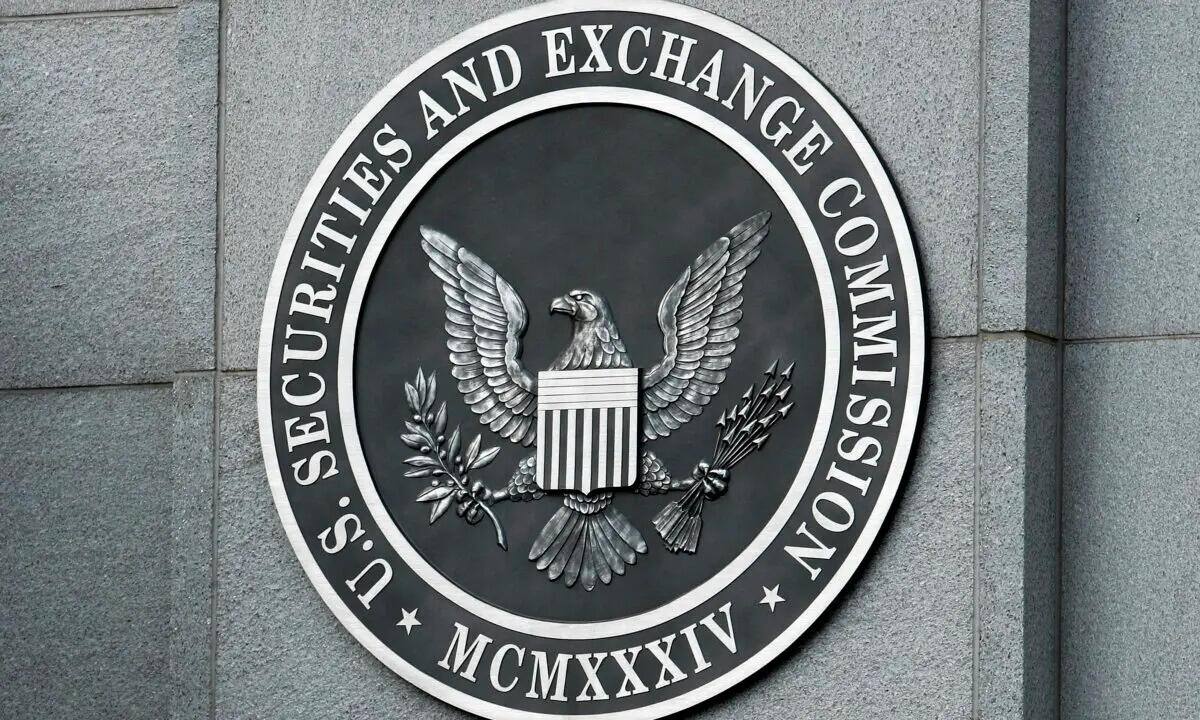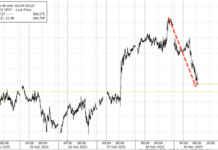By Andrew Moran via The Epoch Times (emphasis on ours),
The departure of Gary Gensler, chairman of the Securities and Exchange Commission (SEC), in January could change the regulatory landscape of U.S. cryptocurrency.
Gensler, a staunch critic of the digital assets industry, confirmed on social media platform X last week that he would resign on the day of inauguration of President-elect Donald Trump.
Trump and Gensler have opposing views on crypto.
Gensler has been attacking the crypto industry since he was appointed head of the SEC in 2021.
Speaking at Piper Sandler’s Global Exchange and Fintech Conference in New York City last year, the outgoing SEC chief said the crypto craze has been fraught with “Hucksters. Scams. Scam artists. Ponzi schemes.”
“Crypto securities markets should not be allowed to undermine the public’s earned confidence in the capital markets,” Gensler said. “Crypto markets should not be allowed to harm investors.”
President-elect Donald Trump has vowed to herald a change in federal crypto policy.
While he vowed to fire Gensler on his first day at the White House, Trump has also proposed a slew of pro-Bitcoin measures.
He wants to create a national Bitcoin reserve, establish the President’s Crypto Advisory Board, and ensure that all remaining Bitcoin is mined domestically.
“For too long, our government has violated a cardinal rule that every Bitcoiner knows by heart: never sell your Bitcoin,” Trump said in a keynote speech at the biggest industry conference last summer.
It’s a throwback from Trump, who has called it a hoax and a threat to the U.S. dollar.
“I’m not a fan of Bitcoin and other cryptocurrencies that are not money and have a very volatile value and are based on thin air,” Trump said in 2019 in social media posts.
“Unregulated crypto-assets can facilitate illegal behavior, including drug trafficking and other illegal activities.”
Now that the new administration has pro-crypto officials, will the SEC’s regulatory efforts change?
Winds of regulatory change
The agency’s fiscal year 2024 enforcement in the crypto industry resulted in fines and investor relief totaling $8.2 billion.
With record-high penalties, the number of cases fell 26 percent from the previous year.
“The enforcement department is an unwavering police officer who follows facts and laws wherever they lead to the prosecution of violators,” Gensler said in a statement attached to the announcement.
That comes when the SEC outlined its New Year’s goals.
In October, the SEC’s Exams Department released its exam priorities for fiscal year 2025.
The report reiterated the SEC’s position to continue monitoring the crypto sector, including investment advisors, brokers-dealers and other financial intermediaries selling digital assets or facilitating transactions.

“Registrant exams focus on offer, sale, recommendations, consulting, trading, and other activities related to crypto-assets that are offered and sold as securities or related products, such as spot-bitcoin or ether-traded exchange-traded products,” the report said.
Once the new regime has decided to take the reins, market watchers will be striving for change, especially with prominent crypto advocates leading various departments, including Scott Bessent as secretary of the treasury and Howard Lutnick as trade secretary.
Currently, experts in the field make recommendations in the recommendations box.
Stuart Alderoty, chief lawyer for Ripple, a blockchain-based digital payments company, highlighted several priorities that Trump’s transition team should consider when choosing the next SEC leader.
On the first day of the new administration, Alderoty thinks the federal government should end anti-fraud crypto disputes and ensure that Commissioners Mark Uyeda and Hester Peirce remain in the regulatory office, he said in X.
Uyeda and Peirce have been crypto allies in the SEC.
Uyeda agreed in an interview with FOX Business’s “Varney &; Co.” with the president-elect that “the war on crypto must end.”
“There are a number of things we can do about crypto to help America become one of the global leaders in the field of crypto,” he said.
The SEC needs to provide clarity, create safe harbors and regulatory sandboxes for investors, and advocate a government-wide “coherent and holistic approach to crypto,” Uyeda said.
“President Trump and the American electorate have sent a clear message. As of 2025, the role of the SEC is to fulfill this mandate,” he said.
Peirce, who spoke on the “CryptoCounsel” podcast this month, has promoted a more open dialogue between the crypto industry and SEC regulators.
Ripple CLO has reflected this view by supporting better relationships between regulators, regulators and market participants.
“Work with all financial regulators and Congress on clear and simple rules for crypto, but without assuming that these rules give the SEC primary jurisdiction over any g,” Alderoty wrote.
“Ensure accountability and restore public confidence by addressing past issues of the SEC by encouraging the Office of the Inspector General.”
Alderoty also proposed to repeal the SEC’s 2019 Digital Asset Investment Contract Analysis Framework, which was released after the industry demanded better regulatory clarity between securities laws and blockchain-based tokens.
These guidelines, which are not a rule or regulation, provide a blueprint for determining whether a digital asset has the characteristics of an investment agreement (security).
Under Republican control over Congress, lawmakers are likely to adopt a “principle- and disclosure-based” approach to policy making, says Dorothy DeWitt, a former director of market surveillance at the U.S. Commodity Futures Trading Commission.
Enforcement is also likely to target high-risk areas of the crypto market, such as national security, fraud and misconduct, he said.
“Finally, the path to regulatory clarity almost certainly involves registering securities for exchanges, brokers and digital assets, and implementing broader disclosure standards and formally adhering to the principles set forth by the agency,” DeWitt said in a Nov. 18 post to the Official Money and Financial Institutions Forum.
Despite the winds of change expected to blow from the crypto sector, industry parties should not immediately foresee significant policy and regulatory changes.
Instead, DeWitt notes that these adjustments could “take place in a year or more, not months.”
Since Trump’s election victory, Bitcoin prices have risen to an all-time high and were a few hundred dollars away from reaching $100,000.
The growth of the main cryptocurrency, which controls 58 percent of the market, has elevated other digital tokens, from stablecoins to altcoins.
A spokesperson for the Securities and Exchange Commission rejected the request for comment.























